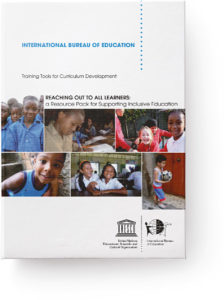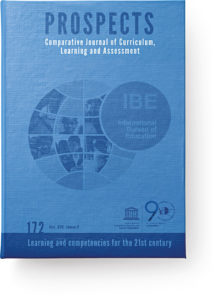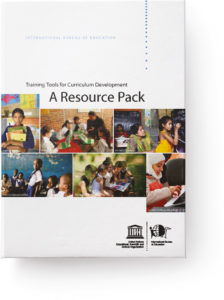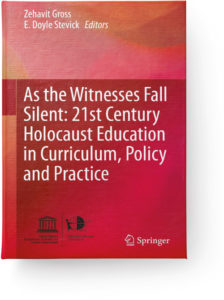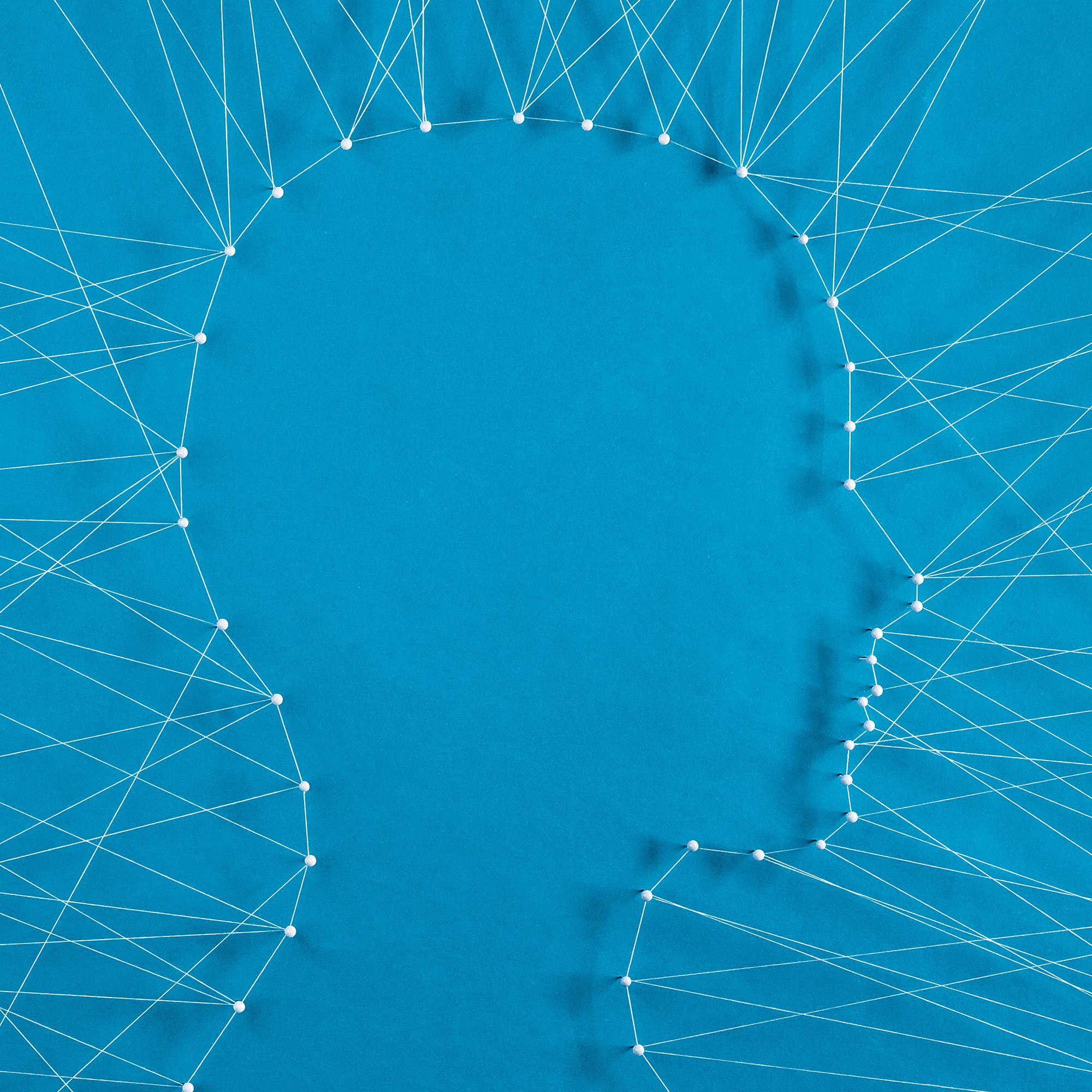
Knowledge
Closing the Knowledge Creation and Application Gap
October 19, 2016
Since its establishment as a Centre for Information and Scientific Research, the IBE and its partner research institutions have continued to push the frontiers of knowledge. The IBE has equally been historically concerned with bringing cutting-edge knowledge to bear on policy and practice.
Yet, a range of factors still keep cutting-edge research-based knowledge inaccessible, both literally and substantively, to a large base of policy makers and practitioners, especially in developing countries. Thus, in 2015, the IBE put a sharp focus on its knowledge brokerage role as a key mechanism for improving the substantive access that policy makers and diverse practitioners can have to cutting-edge knowledge.
By marco
19/10/ 2016
·
- Share
Quality curricula, animated by effective teaching and learning, are key instruments for bringing about desired learning outcomes, as verified by relevant assessments. Research-based knowledge on the IBE’s areas of competence—curriculum, teaching, learning, and assessment—continues to grow not only in volume but also in sophistication. However, a significant portion of policy makers and practitioners in IBE’s areas of competence do not have access to this knowledge. Access is limited by a range of factors including cost, physical distance from libraries and/or total lack of libraries, lack of currency of materials in libraries, and poor-to-nonexistent connectivity to virtual libraries. Sometimes even where potential users do have connectivity, they have limited capacity to sift through a corpus of research and select what matters.
Even where literal access may be adequate, researchers often present findings in a language and format that speaks to the community of knowledge creators but not necessarily to potential users. Thus, literal access does not always translate into substantive access, or to an understanding that lets people see clearly how those findings apply to policy and practice.
The IBE’s 2015 work program placed a sharp focus on its role as a knowledge broker, to narrow the gap between knowledge creation and application. It articulated four concrete steps:
First, select. Sift through huge deposits of research-based knowledge to identify what is most relevant to policy makers and practitioners in the fields of curriculum, teaching, learning, and assessment.
Second, simplify in order to expand substantive access. Review a library of knowledge and re-articulate it into easily accessible language that communicates key findings, making their implications for policy and practice very clear.
Third, disseminate to relevant policy makers and practitioners. Strengthen the IBE’s IT platform, so it can serve as an optimal depository of knowledge, and share it with potential users. The IBE also revamped its website to more easily carry content to targeted users.
For those without easy connectivity, the IBE reached out to technologists to start developing solutions for disseminating knowledge to such areas; the launch of these efforts will begin in 2016. In the meantime, the IBE continued to produce and disseminate books, guidelines and briefs in both soft and hardcover formats.
Furthermore, the IBE strengthened its key networks—the community of practice and the alumni of the post-graduate diploma course—to widen the dissemination of knowledge to targeted users. And it established the Global Curriculum Network (GCN), connecting heads of curriculum, teaching, learning, and assessment in member states, in order to further augment the knowledge dissemination to primary users and contributors.
Fourth, apply knowledge. Infuse this simplified knowledge base into diverse IBE services such as training courses, technical dialogue, and technical assistance.
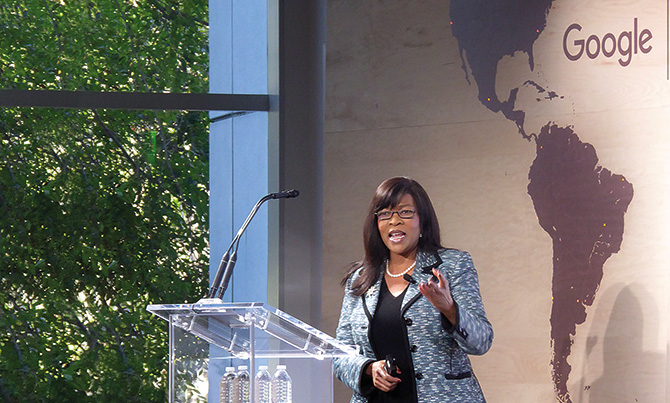
Mmantsetsa Marope. Director, IBE
So what knowledge did the IBE broker during 2015?
Assessment as a tool for improving education quality. In May 2015, during the World Education Forum in Incheon, South Korea, Director Marope emphasized that diverse forms of assessments are indispensable to improve the quality of education and the effectiveness of learning. To this global audience, she announced that the IBE would focus on assessment as a core element of a systemic approach to improving education quality, equity, and learning.
In 2015, the IBE launched a new series of intellectual outputs and debates—In-progress Reflections on Current and Critical Issues in Curriculum, Learning and Assessment—to bring current thinking on these topics to potential users and to stimulate intellectual dialogue around them. The first issue of the series focused on assessment within policies and programs designed to raise the quality of education and to better facilitate learning. This output not only stimulated intellectual dialogue as intended, but also brokered new partnerships in the area of assessment.
Analytical knowledge base for supporting learning. In partnership with the UNICEF Regional Office and the OECD, the IBE produced the Latin American edition of The Nature of Learning: Using Research to Inspire Practice, which the OECD had originally published in 2010. This Spanish edition includes a new chapter that focusses on implications for related policies and practices in the region.
Designing curriculum for the fast-changing 21st century. The IBE sustained its efforts to broker knowledge through the IBE Working Papers on Curriculum Issues. First published in 2006, these papers share the interim results of ongoing research in curriculum and provide readers with a preview of many exploratory studies. In 2015, they summarized research on the complexity of curriculum design within the 21st-century context of rapid social change and rapidly changing student needs. The IBE also reviewed research on how students acquire complex skills, with a focus on the “dark network” of implicit memory. The review concludes with a sharp focus on implications for education policy.
Current knowledge with relevance for key themes of the global Education 2030 Agenda. A key part of knowledge brokering is the capacity to discern what constitutes relevant knowledge and what knowledge is fit for what purpose. This is particularly important in the 21st century, where information overload is a daunting challenge for less discerning users. In its role as knowledge broker, the IBE continued its biweekly Alert Services, which carefully select and make available a range of online resources, including reports, publications, websites and news. Three thematic alerts were produced during 2015, focusing on the global Education 2030 Agenda: inclusive education, global citizenship education, and conflict and education.
IBE webpage. How could the IBE be a knowledge broker without a rich and user-friendly website to manage and communicate knowledge? 2015 saw the redesign and reshaping of the IBE website. The website now crisply reflects the IBE’s new strategic orientation; with its improved usability and navigation tools, users can better access the knowledge base in conjunction with IBE initiatives and activities. It also provides enhanced access to all IBE resources, which are now searchable by country, year, keywords and topics.
What about the IBE’s own knowledge creation during 2015?
The IBE’s sharp focus on knowledge brokerage has not meant that it abandoned its creation of new knowledge. In 2015, it focused on creating new knowledge in its highest priority areas and within its function as a laboratory of ideas. It pushed the frontiers of knowledge in four priority areas, all focused on equity and inclusion. Hot on the heels of the May 2015 World Education Forum, which acknowledged inclusion as an overall guiding principle of the global Education 2030 Agenda, the IBE produced a tool to support countries to put into effect their policies on inclusion in and through education. Reaching Out to All Learners: A Resource Pack for Supporting Inclusive Education aims to support Member States in reviewing national policies and implementing inclusion at the school and classroom level. It provides comprehensive guidance for national policy makers, curriculum specialists and developers, teachers, teacher educators, school leaders and district-level administrators.
Also in 2015, the IBE published As the Witnesses Fall Silent: 21st Century Holocaust Education in Curriculum, Policy, and Practice. The book stands out as a distinct example of the IBE’s commitment to excellence. Reviewers and critics promptly hailed it as the most comprehensive collection ever of empirical research on Holocaust education in the world. The timing was perfect: It was released just as the world marked the 70th anniversary of the liberation of Auschwitz.
The book holds a key message: Given its complexity and deep connections with difficult histories, the Holocaust requires more than a simple new addition or insertion into curricula, or a few more hours squeezed into already packed study schedules. The book makes a profound contribution to the work that lies ahead. Our shared global commitment to end genocide, mass atrocities and extremism requires a multifaceted effort, with education at its heart.
Triggered by debates during the launch of this book, in 2015 the IBE launched a new initiative: Universal Values in the Curriculum.
From 2016 onwards, the IBE will produce more publications on the critical issues of extremism, intolerance and exclusion, using approaches that are revealing and thought-provoking. The series of publications will further support the IBE’s work on universal values in education and the overall UNESCO work on the culture of peace, shaped by a respect for universal human rights.
2015 also marked the 45th anniversary of Prospects, one of the oldest and most continuously published journals in international and comparative education. At 45, it looks more sprightly and vigorous than ever! In fact, 2015 saw the journal receive a facelift, as the IBE rebranded it in line with its current insignia, and as it entered a renaissance of its own. During 2015, Prospects’ editor-in-chief, Director Marope, along with its managing editor, Dr. Simona Popa, aligned the journal’s substantive focus with the IBE’s current mandate to focus on curriculum, teaching, learning and assessment, as tools for equitable quality of education and lifelong learning. Quite an appropriate move, given the focus of the global Education 2030 Agenda. The articles published in 2015 exemplify the IBE’s unflagging efforts to produce and share up-to-date evidence-based knowledge and analyses on curriculum, learning, and assessment.
Key Takeaways
Closing the gap between creating knowledge and applying it is rarely a straightforward task. Having now moved far from its original mandate as a single-function institution, the IBE has embarked on a transformative process. Far from thinking it a pipe dream, the IBE is determined to help those in research, policy and practice confront what is actually at stake and connect those points in a coherent and meaningful way. Its focus on both creating and applying knowledge is audacious but attainable. Like other fields, education is on the brink of fundamental change, and a key part of that change will be opening specialized knowledge to practitioners and even to the public. So, both literal and substantive access to knowledge matters—and even more crucial is applying that knowledge to create new and better realities for all. Technology is a key driver of this change, which comes with a new range of opportunities and challenges.
As a knowledge broker, the IBE is right out in front of these changes, and sees them as promising elements of a much-needed global dialogue about education, among researchers, policy makers, practitioners, and the public. They are also elements of the even more crucial dialogue between education and other fields, even those not immediately linked to education. Learning from advances in other disciplines involves an enlightening and exciting process: translating their often introspective and highly specialized language into accessible wording and cross-fertilizing insights across disciplines. In 2015, the IBE initiated the first such project to connect more vigorously IBE’s contribution to new knowledge.


